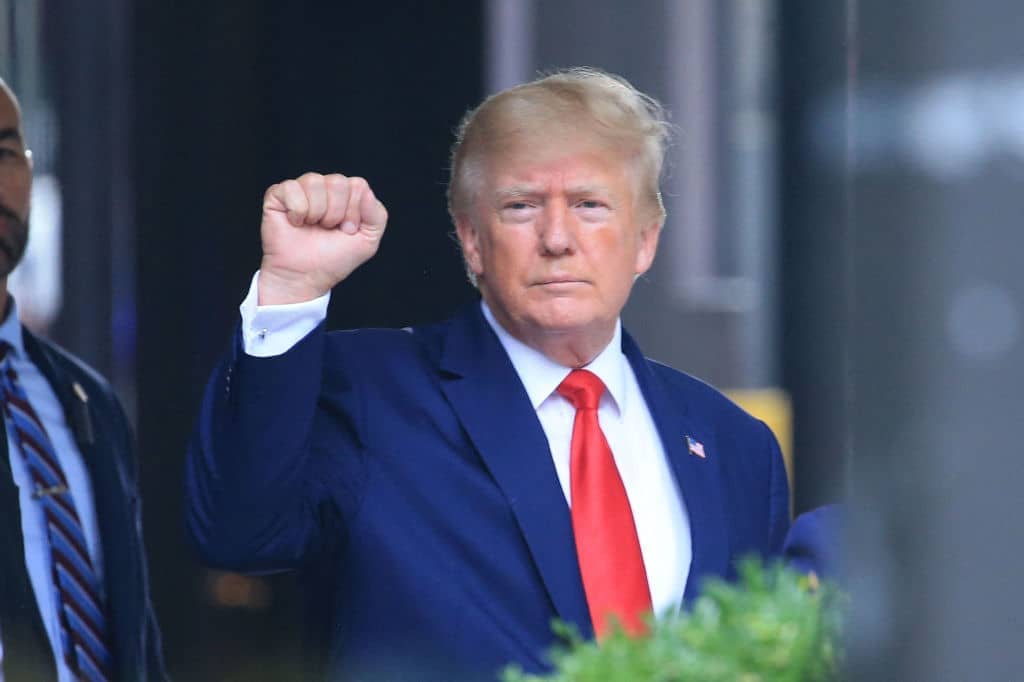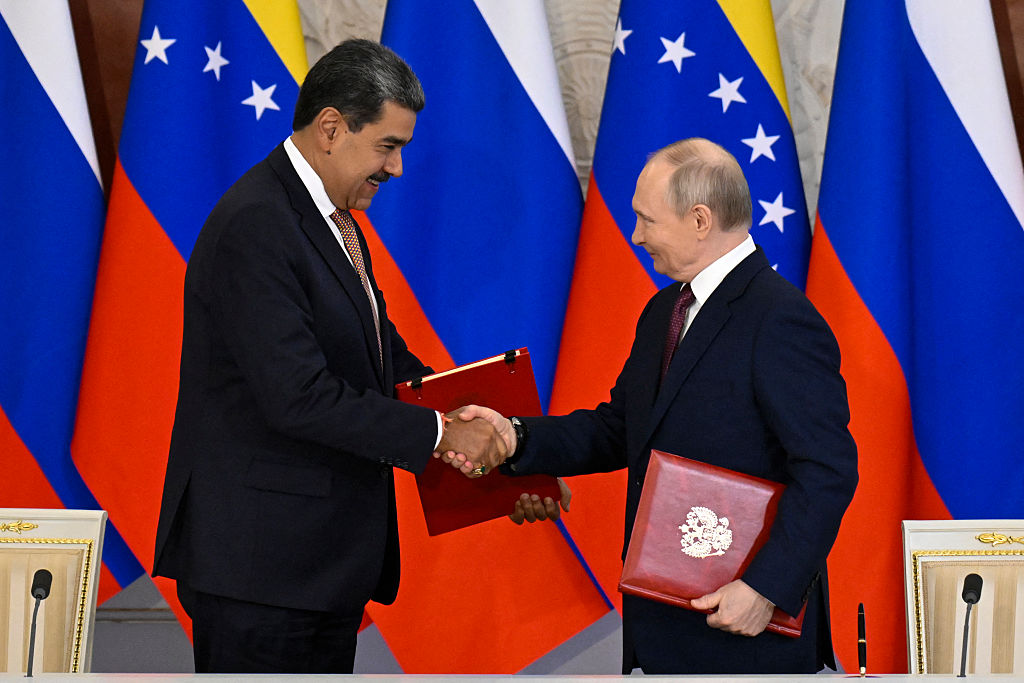When the FBI searched Donald Trump’s Mar-a-Lago residence in Florida earlier this month, various pundits suggested the raid could be an “Al Capone moment.” The Feds might not have got him for attempted insurrection, collusion with Putin, or corruption, it was said, but he could go down for a technicality: i.e., withholding sensitive official documents he legally should have returned.
We’ve heard that “Capone moment” motif a lot throughout the Trump years — and it tells you a lot more about the state of American journalism than anything else. Michael Cohen, Trump’s former lawyer and a deeply shady character in his own right, used to say it to make headlines.
In fact, the original idea was that, exactly like Capone, Trump would be found guilty of criminal tax fiddling — but that has never quite happened. MSNBC’s Rachel Maddow even became famous for her own “Al Capone’s vault moment,” when she excitedly declared that she had gotten hold of Trump’s long sought after tax returns, only to hold up a measly two-page filing that showed Trump had paid perhaps more tax than he should. This reminded Americans of the time Geraldo Rivera blasted open Capone’s vault on live TV, only to find nothing inside.
But where the “Trump’s taxes” story failed, the “Trump caught hoarding nation’s secrets” story may yet succeed. Last night, the Department of Justice released a filing that explains why it conducted the by-any-measure extraordinary search on the 45th president’s property on August 8. The filings includes an already much-circulated picture showing various “Top Secret/SCI” documents splayed out on a rather handsome Mar-a-Lago carpet. In a nice touch, there’s a little stack of picture frames, including a TIME magazine cover of Trump. (As we know, Trump. like all great egomaniacs, likes to store memorabilia of his own fame.)
As Reuters rather too breathlessly puts it:
The filing offers yet another indication of the sheer volume of classified records retrieved from Mar-a-Lago. It shows how investigators conducting a criminal probe have focused not just on why the records were improperly stored there, but also on the question of whether the Trump team intentionally misled them about the continued, and unlawful, presence of the top secret documents.
Criminal! Unlawful! Top secret! It’s easy to get swept in the strangely propagandistic language of these supposed news reports.
Has Trump really been stowing away masses of highly sensitive documents like some sort of state-secrets hoarding pirate?
Then again, it’s also easy to be too dismissive. We’re all so used to media hyper-ventilation over Trump “scandals” that we tend to regard every story, no matter how sensational, as a “nothing burger.”
So… what are we make to make of this latest Trumperama twist? As always it’s a muddle of claims and counter-claims. Who is hiding what? Has Trump really been stowing away masses of highly sensitive documents like some sort of state-secrets hoarding pirate? Is it all part of his dastardly plan to hold the US government, or certain foreign leaders, to ransom?
Or is the Justice Department in fact desperately over-playing the reluctance of Team Trump to hand over documents in order to justify the dramatic decision to search his house?
It does seem true that many of the Trump allies who at first said that the FBI had grossly abused its power in conducting the raid appear to have gone quiet since Friday, when the “probable-cause affidavit” came out. The document suggested, though didn’t prove, that Trump’s legal team had gone to great efforts to hold on to the top-secret documents.
But it’s also true that Friday and yesterday’s “bombshell” documents show the Justice Department on the back foot, responding to Trump’s legal demands for transparency and perhaps even a “special master” to oversee the FBI’s review of the documents.
For now, it seems, the Justice Department appears to have done more than enough to justify its actions. But until we know more about what those documents are and what exactly Trump did with them, it’s impossible to make any great claims. The “Al Capone” moment is still nowhere near.
This article was originally published on The Spectator’s UK website.

























